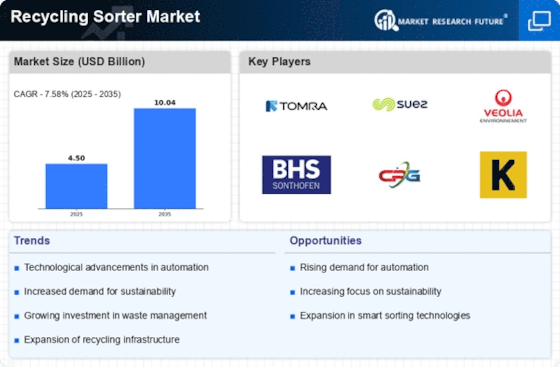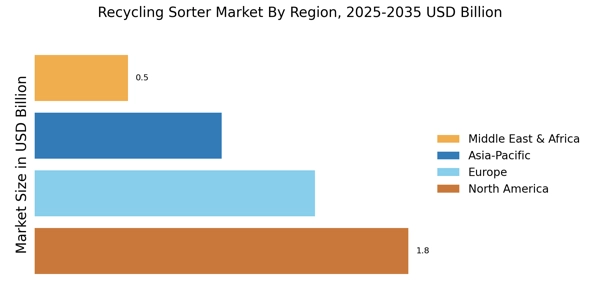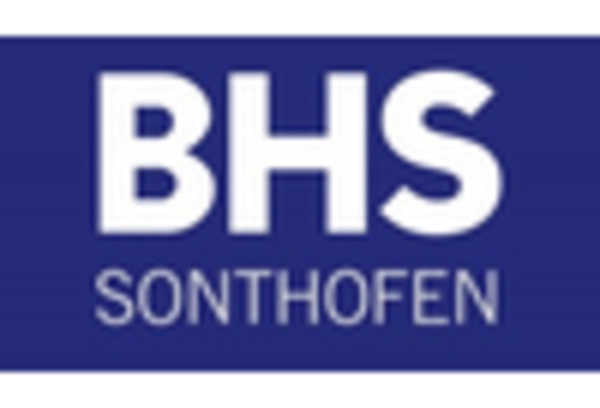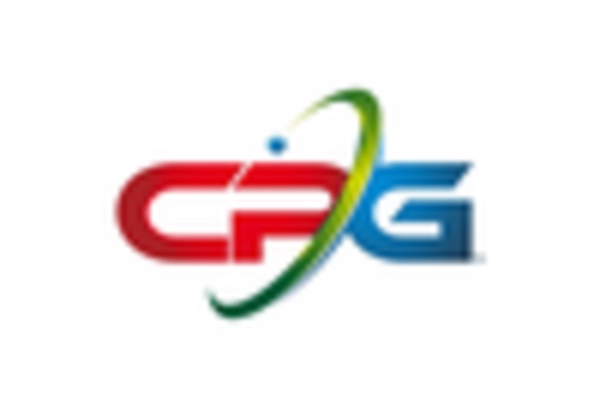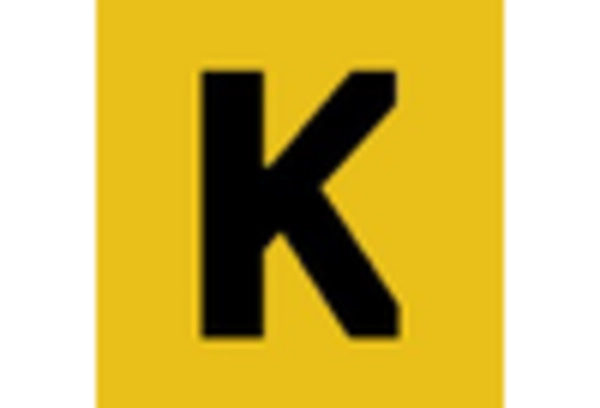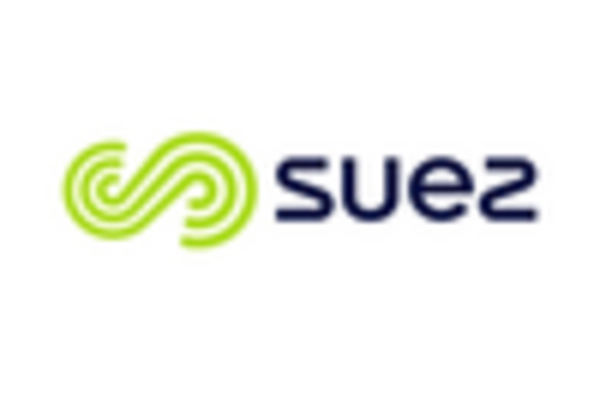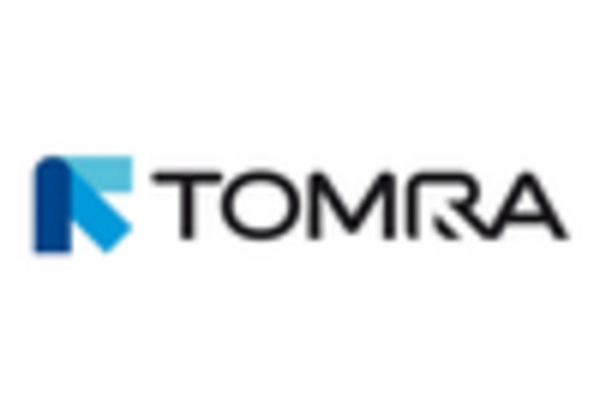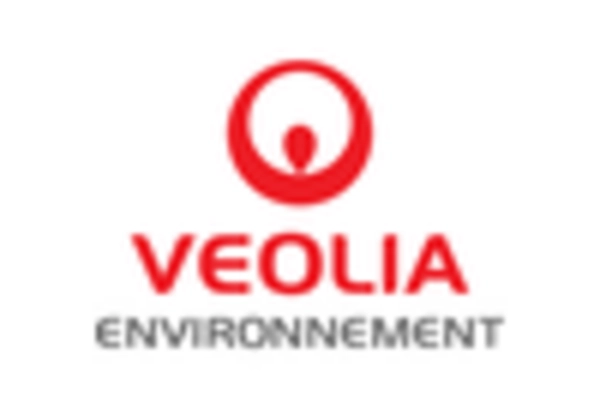Growing Consumer Awareness
The Recycling Sorter Market is benefiting from a notable increase in consumer awareness regarding environmental sustainability. As individuals become more conscious of their ecological footprint, there is a growing demand for effective recycling solutions. This shift in consumer behavior is prompting businesses and municipalities to invest in advanced recycling technologies to meet public expectations. Surveys indicate that a significant percentage of consumers are willing to support companies that prioritize sustainable practices, which in turn drives the need for efficient sorting systems. The Recycling Sorter Market is thus likely to expand as stakeholders respond to this heightened awareness by implementing innovative sorting solutions that align with consumer values.
Increasing Waste Generation
The Recycling Sorter Market is experiencing growth due to the rising volume of waste generated across various sectors. As urbanization continues to expand, the amount of municipal solid waste is projected to increase significantly. According to recent estimates, waste generation could reach 3.4 billion tons annually by 2050. This surge in waste necessitates efficient sorting technologies to enhance recycling rates and reduce landfill dependency. Consequently, the demand for advanced recycling sorters is likely to rise, as municipalities and waste management companies seek to optimize their operations. The Recycling Sorter Market is thus positioned to benefit from this trend, as stakeholders invest in innovative sorting solutions to manage the escalating waste challenge.
Regulatory Support for Recycling
The Recycling Sorter Market is bolstered by stringent regulations aimed at promoting recycling and waste management. Governments worldwide are implementing policies that mandate recycling practices and set ambitious targets for waste diversion from landfills. For instance, some regions have established laws requiring a minimum percentage of materials to be recycled, which directly influences the demand for efficient sorting technologies. As compliance with these regulations becomes essential, the Recycling Sorter Market is likely to see increased investments in sorting equipment. This regulatory landscape not only drives market growth but also encourages innovation in recycling technologies, as companies strive to meet evolving standards and improve their operational efficiencies.
Technological Innovations in Sorting
The Recycling Sorter Market is significantly influenced by ongoing technological innovations that enhance sorting efficiency and accuracy. Advancements in artificial intelligence, machine learning, and robotics are transforming traditional sorting processes. For example, AI-driven sorting systems can identify and separate materials with greater precision, leading to higher recycling rates. The integration of these technologies is expected to reduce operational costs and improve the overall effectiveness of recycling facilities. As a result, the Recycling Sorter Market is likely to witness a surge in demand for state-of-the-art sorting solutions that leverage these innovations, enabling companies to optimize their recycling operations and achieve better environmental outcomes.
Investment in Circular Economy Initiatives
The Recycling Sorter Market is poised for growth due to increased investments in circular economy initiatives. As industries and governments recognize the importance of resource efficiency and waste reduction, there is a concerted effort to transition towards circular economic models. This shift emphasizes the need for effective recycling processes, which directly impacts the demand for advanced sorting technologies. Reports suggest that investments in circular economy strategies could reach trillions of dollars in the coming years, creating substantial opportunities for the Recycling Sorter Market. Companies are likely to seek innovative sorting solutions that facilitate the recovery of valuable materials, thereby enhancing their sustainability efforts and contributing to a more circular economy.


